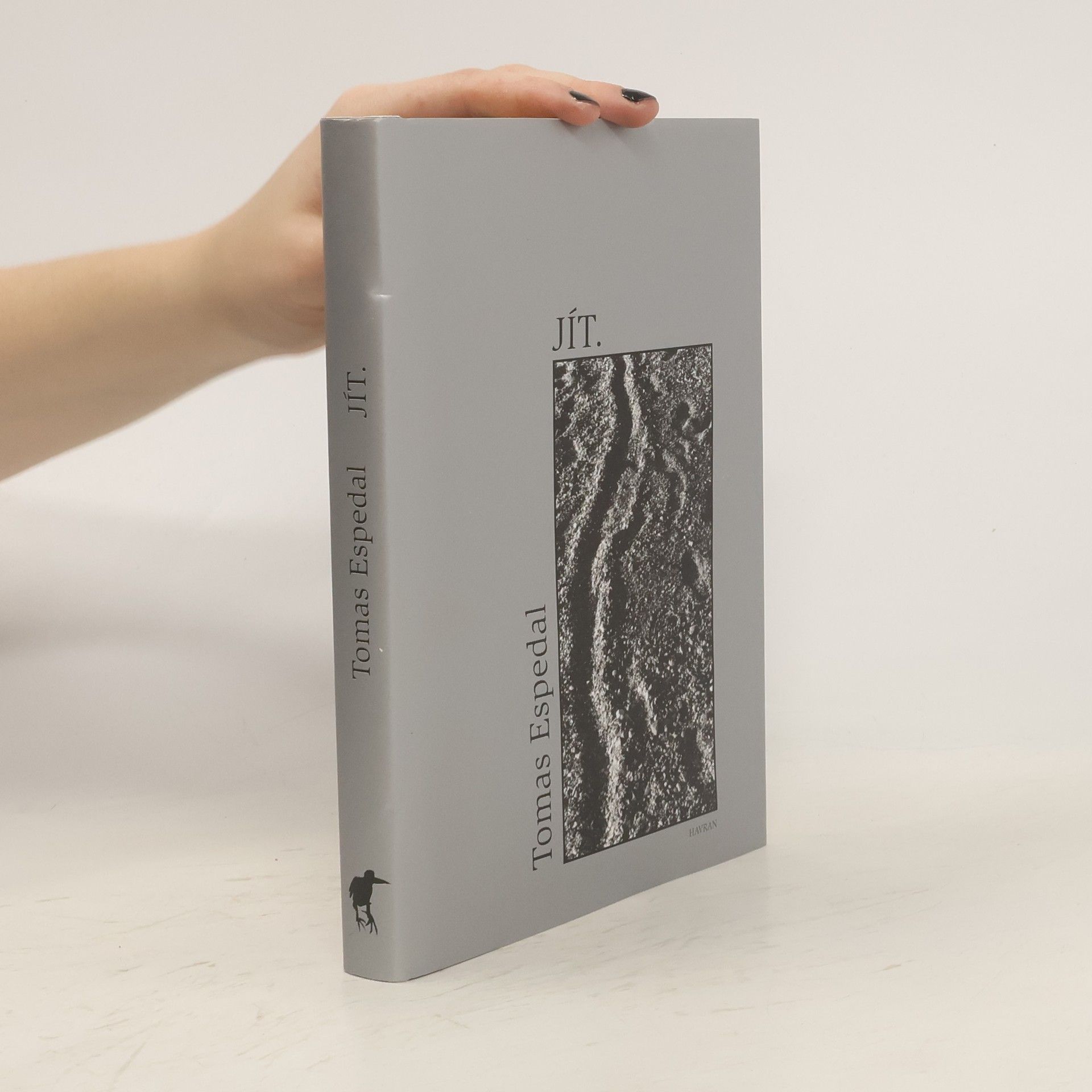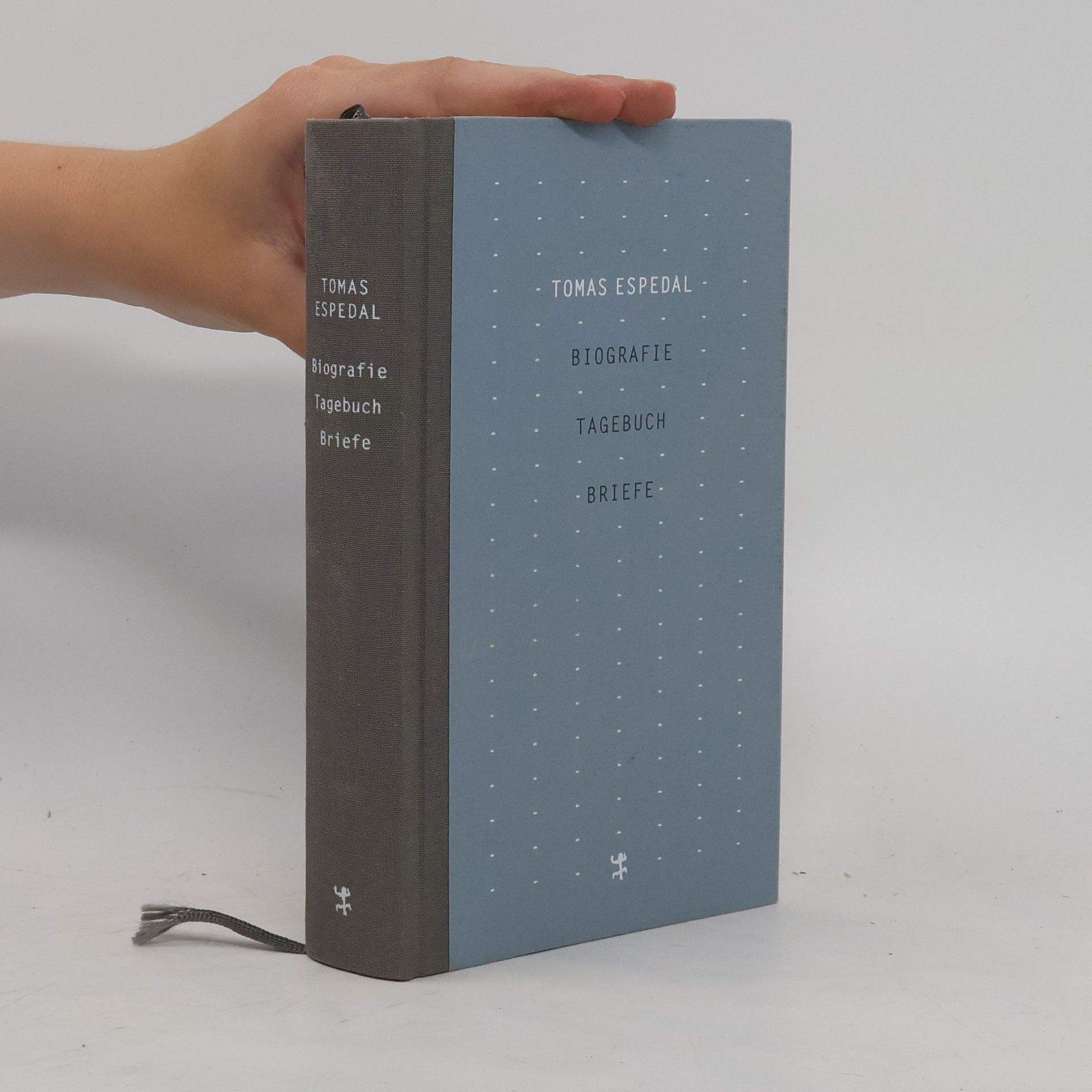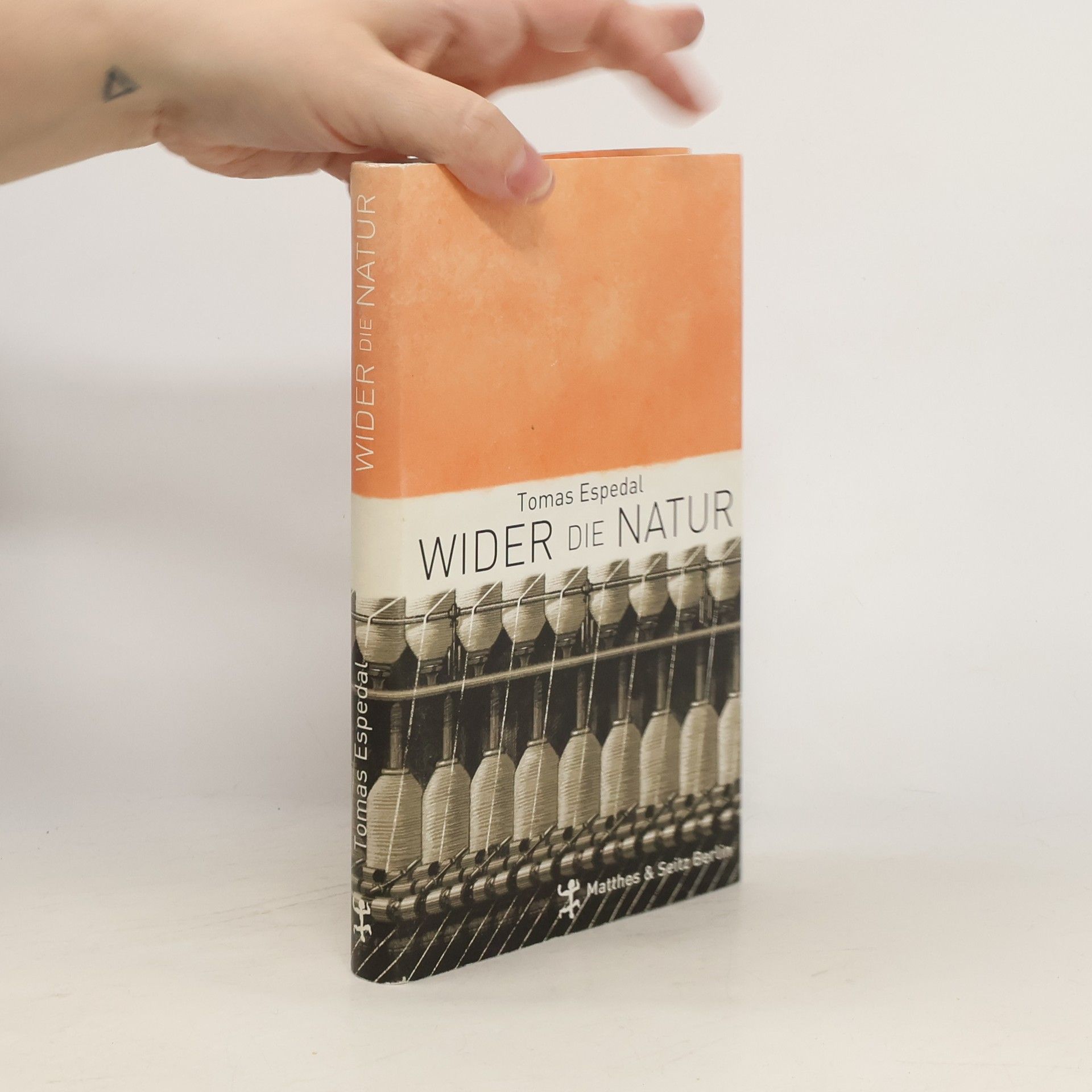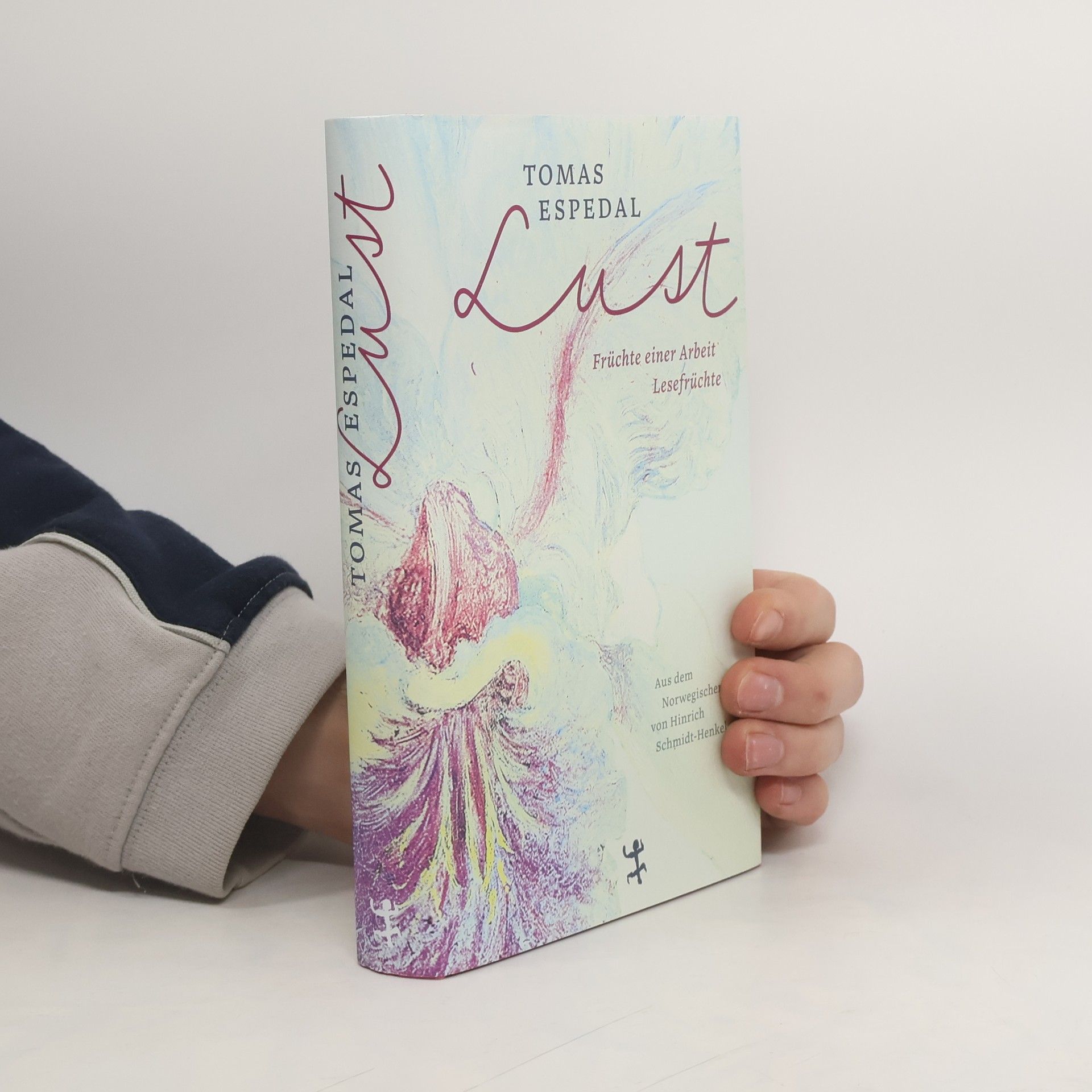Proti umění je esejistický román o člověku, který tvrdě pracuje, aby se stal spisovatelem. V nemilosrdně přítomném čase autor píše zdánlivě nedějový příběh o proměnách života a každodenní práci, o pohybu a klidu, o stěhování a zabydlování, o knize vlastní i o knihách jiných autorů. A kromě toho vypráví o rodině a o tom, jak se předcházející generace otiskují do svých potomků. Děj, skrývající se spíše mezi řádky, vytváří mistrovskou etudu na dané téma, jež osloví každého, kdo má rád skutečnou literaturu.
Tomas Espedal Knihy
Tomas Espedal často experimentuje s překračováním žánrů a zkoumá vztah mezi románem a esejem, dopisem, deníkem, autobiografií a cestopisem. Jeho dílo se vyznačuje jedinečným hlasem, který odráží hluboké zamyšlení nad podstatou umění a života. Espedal se zaměřuje na to, jak mohou různé formy psaní odhalit složité aspekty lidské existence. Jeho literární přístup je intuitivní a hledá pravdu v syrových emocích a reflexi.







Román Jít stále populárnějšího norského autora Tomase Espedala není dobrodružným vyprávěním ani líčením strhujícího děje, spíše jakousi novodobou meditací či přemítáním o spisovateli, který kráčí krajinou a uvažuje o cestách, lidech, zemích, kontinentech, ale také o sobě a literatuře. Originální, hluboce osobní existenciální dílo podrobně mapuje hranice prostoru, střežícího zdánlivě prostou otázku, jak je důležité JÍT. Putující člověk je totiž bez jakéhokoli zázemí, které by ho omezovalo anebo zbavovalo svobody. Nespěchá, nemá cíl, jen se chce přiblížit tomu, co vidí a s čím se setkává. Jde přírodou, jde do světa, jde přes most, jde přes hory, jde k moři, ale jde i přes (anebo za) hranice. Jde v něčích stopách, ať už se jedná o Rimbauda, Rousseaua, Nietzscheho, Heideggera či Wordsworthe. Kráčí vstříc pomalému, ale o to hlubšímu objevování nejen světa okolního, ale především světa vnitřního… neboli objevení sebe sama.
A lyrical travelogue charting Tomas Espedal's journeys to and ruminations around the world, from his native Norway to Istanbul and beyond. "Why travel?" asks Tomas Espedal in Tramp, "Why not just stay at home, in your room, in your house, in the place you like better than any other, your own place. The familiar house, the requisite rooms in which we have gathered the things we need, a good bed, a desk, a whole pile of books. The windows giving on to the sea and the garden with its apple trees and holly hedge, a beautiful garden, growing wild." The first step in any trip or journey is always a footstep--the brave or curious act of putting one foot in front of the other and stepping out of the house onto the sidewalk below. Here, Espedal contemplates what this ambulatory mode of travel has meant for great artists and thinkers, including Rousseau, Kant, Hazlitt, Thoreau, Rimbaud, Whitman, Giacometti, and Robert Louis Stevenson. In the process, he confronts his own inability to write from a fixed abode and his refusal to banish the temptation to become permanently itinerant. Lyrical and rebellious, immediate and sensuous, Tramp conveys Espedal's own need to explore on foot--in places as diverse as Wales and Turkey--and offers us the excitement and adventure of being a companion on his fascinating and intriguing travels.
The companion volume to Espedal's Against Art, written in his characteristic poetic prose. In contemporary Norwegian fiction Tomas Espedal's work stands out as uniquely personal; it can be difficult to separate the fiction from Espedal's own experiences. Against Nature, a companion volume to Espedal's earlier Against Art, is an examination of factory work, love's labor, and the work of writing. Espedal dwells on the notion that working is required in order to live in compliance with society, but is this natural? And how can it be natural when he is drawn toward impossible things--impossible love, books, myths, and taboos? He is drawn into the stories of Abélard and Héloïse, of young Marguerite Duras and her Chinese lover, and soon realizes that he, too, is turning into a person who must choose to live against nature. "A masterpiece of literary understatement. Everybody who has recently been thirsting for a new, unexhausted realism, like water in the desert, will love this book."--Die Zeit, on the Norwegian edition
The Year
- 212 stránek
- 8 hodin čtení
Written as a long poem, The Year is Espedal's riveting stream of consciousness--profound, edgy, sometimes manic, but always intensely intimate
Love
- 100 stránek
- 4 hodiny čtení
A novel of intersecting historical threads. Love narrates celebrated Norwegian writer Tomas Espedal's search for death. The decision blossoms within I--the I-person--"like some interior bloom, black and beautiful" on a warm spring day in May, and it is this resolution that fills his self-imposed final year with meaning: Death. It can be so beautiful. One must create this beauty for oneself. One must submit to this naturalness, one must choose it, like pulling the duvet over oneself in bed or jumping off a bridge. But almost immediately life deals I a wildcard: a new love affair brings some of the best days he's ever known and threatens his pact with death. Will he be able to leave Aka and the child she's carrying? He has put an endpoint on his life to intensify experience but is he sure that disappearing from their lives, becoming an absent father, is the best thing for all of them? Set against Espedal's constant reference, the ebb and flow of the seasons, something close to ecstasy propels this most introspective of narratives towards a universal truth.
Ein Buch wie ein Vermächtnis. Tomas Espedal schreibt in seinem bislang intimsten Buch über die Orte, an denen er lebte, die Frauen, die er begehrte, die Gesichter derer, die er als junger Boxer zertrümmerte, die Bücher, die er las, und über die Liebe zu seiner sterbenden Mutter. Espedal lotet die Grenzen von fiktionalem und autobiografischem Schreiben aus : In jedem der in sich eigenständigen Texte »Biografie«, »Tagebuch« und »Briefe« gibt er schmerzvoll preis, wie er wurde, was er ist, bis am Ende der Schriftsteller über die Privatperson siegt.
Ein Mann wird älter. Er verliebt sich in eine junge Frau. Sie beginnen eine Affäre. Die junge Frau verlässt den älteren Mann. Eine alte Geschichte, doch für Tomas Espedal bedeutet sie einen Riss in seinem Leben, der einen intensiven Erinnerungsprozess in Gang setzt: Seine Jugend, die erste Liebe, die Zeit mit seiner verstorbenen Frau, große Momente, schwere Stunden und Erfahrungen des Alltags ziehen an ihm vorbei. Die tragische Auflösung des Ich-Erzählers wird von der Auflösung der literarischen Form begleitet, die in einem Notizbuch mündet, das mit den unversöhnlichen Worten schließt: »Du sagst Ende, aber die Liebe wird nicht enden.« Ein erschütternd kompromissloses Buch. Ein Heilmittel gegen den Schmerz der Liebe.
Wie wird man ein Schriftsteller? Ist es möglich, das Schreiben zum Beruf zu machen? Kann man davon leben? Und was für ein Leben wird das sein? In seinem jüngsten Buch Lust verbindet Tomas Espedal Autobiografie und Bildungsroman und geht dieser Frage nach vierzig Jahren des Schreiben nach. Dabei verwebt er Leben und Literatur auf bezwingende Weise miteinander. Der Doppeldeutigkeit des Titels wird er dabei auf mehr als eine Weise gerecht: Lust ist ein Roman über das Lesen und das Schreiben. Über das Vergessen und das Erinnern. Über Reisen und Liebesaffären. Über die Bedeutung des Ortes für das Schreiben. Über Städte. Über Kopenhagen und das Leben der Schriftsteller. Über die Suche nach den idealen Schreiborten und Arbeitszeiten. Über das Schreiben in der Nacht. Über das Schreiben mit der Hand. Über Freundschaften. Und nicht zuletzt über Geld und gute und schlechte Wirtschaft.


